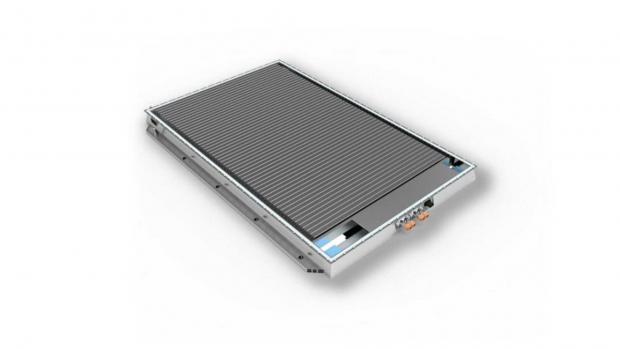
Breaking News
 SILVER CRASHES TO $75 - But China Is Paying $89 (Ghost Week Trap)
SILVER CRASHES TO $75 - But China Is Paying $89 (Ghost Week Trap)
 Firegate: Democrat LA Mayor Karen Bass' Admin Altered Palisades Fire Report & Deleted Evidence
Firegate: Democrat LA Mayor Karen Bass' Admin Altered Palisades Fire Report & Deleted Evidence
 BREAKING: Candace Owens' Massive Mind Control House of Cards is Now Collapsing in Real Time
BREAKING: Candace Owens' Massive Mind Control House of Cards is Now Collapsing in Real Time
 We Cannot Build an Economy on Lies
We Cannot Build an Economy on Lies
Top Tech News
 EngineAI T800: Born to Disrupt! #EngineAI #robotics #newtechnology #newproduct
EngineAI T800: Born to Disrupt! #EngineAI #robotics #newtechnology #newproduct
 This Silicon Anode Breakthrough Could Mark A Turning Point For EV Batteries [Update]
This Silicon Anode Breakthrough Could Mark A Turning Point For EV Batteries [Update]
 Travel gadget promises to dry and iron your clothes – totally hands-free
Travel gadget promises to dry and iron your clothes – totally hands-free
 Perfect Aircrete, Kitchen Ingredients.
Perfect Aircrete, Kitchen Ingredients.
 Futuristic pixel-raising display lets you feel what's onscreen
Futuristic pixel-raising display lets you feel what's onscreen
 Cutting-Edge Facility Generates Pure Water and Hydrogen Fuel from Seawater for Mere Pennies
Cutting-Edge Facility Generates Pure Water and Hydrogen Fuel from Seawater for Mere Pennies
 This tiny dev board is packed with features for ambitious makers
This tiny dev board is packed with features for ambitious makers
 Scientists Discover Gel to Regrow Tooth Enamel
Scientists Discover Gel to Regrow Tooth Enamel
 Vitamin C and Dandelion Root Killing Cancer Cells -- as Former CDC Director Calls for COVID-19...
Vitamin C and Dandelion Root Killing Cancer Cells -- as Former CDC Director Calls for COVID-19...
 Galactic Brain: US firm plans space-based data centers, power grid to challenge China
Galactic Brain: US firm plans space-based data centers, power grid to challenge China
BYD Reveals Ultra-Safe Blade Battery: Pierces It With A Nail

The Chinese battery and EV tycoon BYD officially launched its all-new Blade Battery, which within the next few months will debut in first electric models.
The Blade Battery is essentially a lithium iron phosphate (LFP) battery, but in a new approach to significantly increase safety and volumetric energy density as well as reduce costs.
"At an online launch event themed "The Blade Battery – Unsheathed to Safeguard the World", Wang Chuanfu, BYD Chairman and President, said that the Blade Battery reflects BYD's determination to resolve issues in battery safety while also redefining safety standards for the entire industry."
To improve the batteries, BYD changed the conventional prismatic LFP cells into thinner and longer cells, which were designed to become structural parts (beams) of the pack. That simplifies the pack design.
BYD argues that conventionally, only about 40% of the battery pack volume is batteries (cells take 80% of a module, and modules take 50% of the pack). In the case of the new Blade Battery approach - cell-to-pack (CTP) technology - the batteries take 60% of pack volume, which is a 50% improvement.
"The Blade Battery has been developed by BYD over the past several years. The singular cells are arranged together in an array and then inserted into a battery pack. Due to its optimized battery pack structure, the space utilization of the battery pack is increased by over 50% compared to conventional lithium iron phosphate block batteries."



